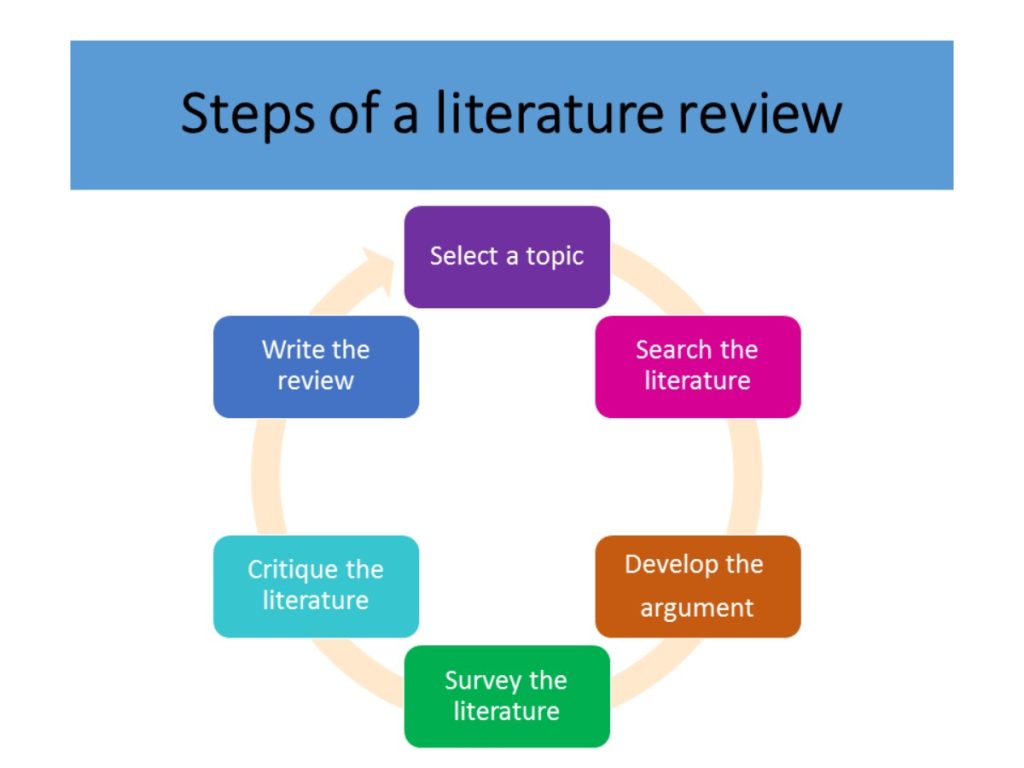Writing a High-Quality Research Project in a Nigerian University – A Step-by-Step Guide For Final Year Students
By Chila Andrew Aondofa
Writing a research project can be a daunting task for many Nigerian University students. It requires a lot of time, effort, and dedication to complete a successful project. However, with the right guidance and resources, writing a research project can be a fulfilling and rewarding experience.
In this blog post, we will provide a step-by-step guide to writing a research project at a Nigerian university. We will cover everything from choosing a topic to conducting research, to writing your findings, and finally, formatting your project.
With this comprehensive guide, you will be able to confidently tackle your research project, meet your deadlines, and produce a high-quality project that meets the standards of your university.
Understanding the research project requirements in Nigerian universities

What is a research project? A research project is an academic, scientific, or professional undertaking to answer a research question. Research projects can take many forms, such as qualitative or quantitative, descriptive, longitudinal, experimental, or correlational. What kind of research approach you choose will depend on your topic.
When embarking on a research project in a Nigerian university, it is crucial to have a solid understanding of the specific requirements set forth by the institution. Each university may have its own unique guidelines and regulations that must be followed when conducting and presenting research.
First and foremost, it is essential to familiarize yourself with the specific research project format required by your university. This typically includes guidelines for the structure, length, and formatting of the research paper or thesis. Pay close attention to the required sections such as the abstract, introduction, literature review, methodology, results, discussion, and conclusion.
Additionally, most Nigerian universities have specific guidelines regarding the sources that can be used for research. It is important to consult the university’s library and online databases to ensure that you are utilizing credible and peer-reviewed sources. This will not only enhance the quality of your research but also demonstrate your ability to critically analyze and evaluate existing literature in your field.
Furthermore, many Nigerian universities emphasize the importance of ethical considerations in research. This includes obtaining proper consent from participants, ensuring the confidentiality and anonymity of respondents, and adhering to ethical guidelines when conducting experiments or surveys. Familiarize yourself with the ethical review process and seek guidance from the university’s research ethics committee, if necessary.
Lastly, pay close attention to the deadlines and submission requirements set by your university. Ensure that you have a clear understanding of the timeline for each stage of the research project, including proposal submission, data collection, analysis, and final submission. Failure to adhere to these deadlines may result in penalties or even the rejection of your research project.
By thoroughly understanding the research project requirements in Nigerian universities, you will be well-equipped to embark on a successful and impactful research journey. Take the time to familiarize yourself with the guidelines and seek guidance from your supervisors and mentors to ensure that your research project meets the highest standards of academic excellence.
Choosing a research topic that aligns with your interests and academic goals
What is a research topic? A Research topic is a specific subject or area of interest that a researcher wants to investigate or explore in-depth through research. It is the overarching theme or question that guides a research project and helps to focus the research activities towards a clear objective.
Choosing a research topic that aligns with your interests and academic goals is a crucial step in writing a research project at a Nigerian university. This is because a well-chosen topic not only makes the research process more enjoyable but also enhances your chances of producing high-quality work.
To begin, take some time to reflect on your personal interests and academic strengths. What subjects or areas of study do you find most intriguing? What topics have you previously explored in your coursework that sparked your curiosity? Identifying these areas will help you select a research topic that you are passionate about and motivated to delve into further.
Additionally, consider your academic goals and the requirements of your program. Are there specific areas of knowledge or skills you wish to develop through your research project? Are there any specific research areas that align with the objectives of your program or department? By aligning your research topic with your academic goals, you ensure that your project contributes meaningfully to your academic and professional development.
Next, conduct thorough research to identify existing gaps or areas of need within your chosen field. Look for recent studies, academic journals, and conference proceedings to identify ongoing debates, emerging trends, or unanswered questions. This will help you narrow down your topic to a specific research problem or question that has not been extensively explored.
Moreover, seek guidance from your professors, advisors, or mentors. They can provide valuable insights and suggestions based on their expertise and experience. They may also be aware of ongoing research projects or collaborations that could enhance your own work.
Ultimately, the key is to choose a research topic that excites you, aligns with your academic goals, and contributes to the existing body of knowledge in your field. By carefully considering these factors and conducting thorough research, you can set a strong foundation for a successful research project in a Nigerian university.
Conducting a literature review to gather relevant information and identify research gaps

What is a literature review? A literature review is a survey of scholarly sources on a specific topic. It provides an overview of current knowledge, allowing you to identify relevant theories, methods, and gaps in the existing research that you can later apply to your paper, thesis, or dissertation topic.
Conducting a literature review is an essential step in writing a research project in a Nigerian university. This process involves reviewing existing scholarly works, such as published research papers, books, and academic journals, to gather relevant information and identify any gaps in the existing knowledge.
To begin your literature review, start by clearly defining your research topic or research question. This will help you narrow down your search and focus on finding literature that directly relates to your specific area of study.
Next, utilize various academic databases and search engines to search for relevant literature. Some popular databases that Nigerian universities have access to include JSTOR, IEEE Xplore, and Google Scholar. These platforms allow you to search for peer-reviewed articles, conference papers, and other scholarly resources.
When reviewing the literature, pay attention to the key findings, methodologies used, and the overall relevance of each source to your research project. Take notes and organize the information you gather to make it easier to refer back to later. This will also help you identify any gaps or areas where further research is needed.
Additionally, it is important to critically evaluate the credibility and reliability of the sources you include in your literature review. Ensure that the authors are reputable and that the research has been peer-reviewed and published in reputable journals.
As you progress with your literature review, you may find that certain themes or patterns emerge within the existing research. These themes can provide insights into the current state of knowledge in your field and help identify areas where your research can make a valuable contribution.
Remember, conducting a comprehensive literature review is not just about summarizing existing works but also about critically analyzing and synthesizing the information to identify research gaps and formulate research objectives.
By dedicating time and effort to conducting a thorough literature review, you will lay a solid foundation for your research project and demonstrate your understanding of the existing knowledge in your field of study.
Formulating a research question or hypothesis
What is a research question? A research question is a specific inquiry which the research seeks to provide a response to. It resides at the core of systematic investigation and it helps you to clearly define a path for the research process. A research question is usually the first step in any research project. Basically, it is the primary interrogation point of your research and it sets the pace for your work.
Formulating a research question or hypothesis is a crucial step in any research project. It sets the direction and purpose of your study, allowing you to focus your efforts and guide your investigation. In a Nigerian university setting, where research plays a vital role in academic development, it becomes even more important to approach this step with careful consideration.
To begin, think about the subject or topic you wish to explore. Consider the gaps in existing knowledge, areas that require further understanding, or problems that need solving. This will help you identify a research question that is both relevant and significant. Your research question should be specific, clear, and concise, allowing you to delve deep into the subject matter.
Alternatively, you may choose to formulate a hypothesis instead of a research question. A hypothesis is a statement that suggests a relationship or association between variables, which you will then test through your research. This approach is commonly used in experimental or quantitative studies, where you can measure and analyze data to support or refute your hypothesis.
Whichever approach you choose, it is important to ensure that your research question or hypothesis is feasible and achievable within the given time and resource constraints. It should also align with the objectives of your research project and contribute to the existing body of knowledge in your field.
Once you have formulated your research question or hypothesis, it is recommended to seek feedback from your advisor or mentor. They can provide valuable insights and help refine your research focus. Additionally, conducting a literature review can help you further refine your question or hypothesis by examining the existing research and identifying any gaps or areas that need further investigation.
Remember, the research question or hypothesis sets the foundation for your entire project. Take the time to carefully craft it, ensuring it is relevant, feasible, and aligned with your research objectives. With a well-formulated question or hypothesis, you are on your way to conducting a successful research project in a Nigerian university.
Designing a research methodology and selecting appropriate data collection methods

What is a Research Methodology? A Research methodology is a logical, systematic plan to resolve a research problem. It refers to the practical “how” of any given piece of research, and details a researcher’s approach to the research to ensure reliable, valid results that address their aims and objectives. It is about how a researcher systematically designs a study to ensure valid and reliable results that address the research aims and objectives.
Designing a research methodology and selecting appropriate data collection methods are crucialll steps in writing a research project in a Nigerian university. These steps determine the credibility and reliability of your research findings, making them essential for producing high-quality work.
Firstly, when designing your research methodology, you need to clearly define your research objectives and questions. This will guide the selection of appropriate methods to gather data and answer your research questions effectively. Consider whether your research will be qualitative, quantitative, or a combination of both.
For quantitative research, you may opt for surveys, experiments, or statistical analysis of existing data. Surveys can be conducted through online platforms, face-to-face interviews, or questionnaires. Experiments involve manipulating variables to observe their impact on the research subject. Statistical analysis requires the collection of data from reliable sources, such as official statistics or previous studies.
Qualitative research, on the other hand, focuses on understanding behaviors, motivations, and experiences. Methods like interviews, focus groups, observations, and content analysis are commonly used. Interviews can be structured, semi-structured, or unstructured, depending on the depth of information sought.
Focus groups provide insights through group discussions and interactions. Observations involve direct observation of subjects in their natural settings. Content analysis entails examining texts, documents, or media to identify patterns or themes.
Once you have chosen the appropriate research methodology, it is essential to select the most suitable data collection methods. Consider factors such as accessibility, feasibility, and ethical considerations. In Nigerian universities, you may face limitations in terms of resources and time, so it is important to choose methods that can be effectively implemented within these constraints.
Additionally, consider the cultural context and the population you are studying. Nigerian universities have diverse student and faculty populations, so it is crucial to ensure your data collection methods are culturally sensitive and inclusive.
In conclusion, designing a research methodology and selecting appropriate data collection methods are critical steps in writing a research project in a Nigerian university. By carefully considering your research objectives, the nature of your study, and the resources available, you can ensure that your research is rigorous, relevant, and contributes to the academic community.
Collecting and analyzing data using statistical tools or qualitative analysis techniques
Collecting and analyzing data is a crucial step in any research project, as it provides the foundation for drawing meaningful conclusions and making informed decisions. In Nigerian universities, researchers have access to a variety of statistical tools and qualitative analysis techniques to aid in this process.
When it comes to quantitative research, statistical tools play a pivotal role in analyzing numerical data. These tools enable researchers to identify patterns, trends, and relationships within the data. Popular statistical software packages like SPSS (Statistical Package for the Social Sciences) and STATA provide a wide range of analysis options, including descriptive statistics, inferential statistics, regression analysis, and more. These tools allow researchers to make sense of large datasets and draw statistically significant conclusions.
On the other hand, qualitative research focuses on understanding and interpreting non-numerical data, such as interviews, observations, and textual analysis. Qualitative analysis techniques like thematic analysis, content analysis, and discourse analysis help researchers organize and make sense of qualitative data. These techniques involve identifying recurring themes, analyzing patterns in language or behavior, and drawing meaningful interpretations from the data.
In Nigerian universities, researchers can leverage both quantitative and qualitative analysis techniques to gain a comprehensive understanding of their research topic. Depending on the nature of the research project, a combination of these approaches may be necessary to provide a well-rounded analysis.
It is essential to note that collecting and analyzing data is a meticulous process that requires careful attention to detail and adherence to ethical standards. Researchers must ensure that data collection methods are rigorous, reliable, and unbiased. Additionally, they should consider the privacy and confidentiality of participants, especially when dealing with sensitive information.
By employing appropriate statistical tools or qualitative analysis techniques, researchers in Nigerian universities can effectively analyze their data, uncover significant findings, and contribute to the body of knowledge within their respective fields.
Interpreting and presenting research findings in a clear and organized manner
Once you have completed your research project and collected all the necessary data, the next crucial step is interpreting and presenting your findings in a clear and organized manner. This stage is essential as it allows you to communicate the outcomes of your research effectively, enabling others to understand and evaluate your work.
To begin, carefully analyze the data you have gathered and identify any patterns, trends, or relationships that emerge. This process involves examining the information from different angles, using statistical analysis if applicable, and drawing meaningful conclusions. Organize your findings in a logical manner, grouping related information together and presenting it in a coherent structure.
When presenting your research findings, consider the target audience and choose a format that suits their needs. This can range from a traditional research paper to a presentation, poster, or even a multimedia format. Regardless of the chosen medium, ensure that your findings are clearly articulated, supported by evidence, and easy to follow.
Visual aids such as graphs, charts, and tables can be powerful tools to enhance the clarity and understanding of your findings. They provide a visual representation of the data, making complex information more accessible. Use appropriate labeling, titles, and captions to guide the reader or viewer through your research findings.
Additionally, it is essential to provide detailed explanations and interpretations of your results. Avoid using technical jargon or overly complex language that may confuse your audience. Instead, strive for simplicity and clarity, presenting your findings in a manner that can be easily understood by both experts and non-experts in the field.
Remember to reference any sources or literature that have influenced your research or provided context for your findings. Properly citing your references not only strengthens the credibility of your work but also allows readers to explore the topic further if desired.
By interpreting and presenting your research findings in a clear and organized manner, you can effectively communicate the significance of your work and contribute to the academic community. This step is vital in ensuring that your research has a lasting impact and is accessible to a wider audience.
Writing the research project introduction, literature review, methodology, results, and discussion sections
Writing a research project can be a daunting task, especially when it comes to the various sections that need to be included. In this section, we will break down the process of writing the introduction, literature review, methodology, results, and discussion sections, giving you a step-by-step guide to follow.
- INTRODUCTION: The introduction sets the stage for your research project. Start by providing background information on the topic and clearly state the research problem or question you aim to address. Explain the significance of your research and outline the objectives and scope of your study.
- LITERATURE REVIEW: The literature review section demonstrates your knowledge and understanding of existing research on the topic. Conduct a thorough review of relevant scholarly articles, books, and other sources to identify key theories, concepts, and findings related to your research question. Analyze and synthesize the literature to highlight any gaps or controversies that your study aims to address.
- METHODOLOGY: In this section, describe the research design, participants, data collection methods, and data analysis techniques you will use. Provide enough detail for someone else to replicate your study. Justify your choices and discuss any limitations or ethical considerations that may arise.
- RESULTS: Present your findings in a clear and organized manner. Use tables, graphs, or charts to display quantitative data, and provide a narrative description for qualitative data. Ensure that your results directly address your research question or hypothesis.
- DISCUSSION: Interpret and analyze your results in light of the research question and relevant theories. Discuss any unexpected findings and compare them with previous research. Address the limitations of your study and suggest areas for future research. Conclude by summarizing the key findings and their implications.
Remember to maintain a logical flow throughout your research project, ensuring that each section builds upon the previous one. Use clear and concise language, and support your claims with evidence from credible sources. Finally, revise and edit your work to ensure clarity, coherence, and adherence to formatting guidelines specified by your university or department.
Formatting the research project according to the university’s guidelines and citation style
Formatting your research project according to the specific guidelines set by your Nigerian university is crucial for its acceptance and credibility. Each institution may have its own unique requirements, so it’s essential to familiarize yourself with the guidelines provided by your university.
Firstly, pay close attention to the formatting specifications. This includes the font style and size, line spacing, margins, and page numbering. Typically, Times New Roman or Arial with a font size of 12 is preferred, along with 1.5 or double line spacing. Ensure that your project adheres to the specified margin measurements, usually one inch on all sides.
Another vital aspect is the citation style. Nigerian universities often have specific citation styles that they prefer, such as the Harvard referencing system or the American Psychological Association (APA) style. You must diligently follow these guidelines when citing sources and creating your bibliography or reference list.
Incorporating in-text citations correctly is crucial for providing evidence and acknowledging the work of other researchers. Make sure to include the author’s last name, publication year, and page number (if applicable) within the parentheses. Additionally, ensure that your reference list or bibliography is organized alphabetically and includes complete and accurate information for each source.
Moreover, your research project may require specific headings or subheadings as per the university’s guidelines. These headings help in organizing your project and presenting information in a logical manner. Make sure to use consistent formatting for these headings, such as using bold or italicized fonts, capitalization rules, and indentation.
Lastly, consider any additional requirements provided by your university, such as the inclusion of an abstract, acknowledgments, or appendices. These elements may vary depending on the nature of your research and the specific guidelines set by your institution.
By adhering to the formatting guidelines and citation style specified by your Nigerian university, you can ensure that your research project is professional, well-structured, and meets the academic standards expected in higher education.
Proofreading, editing, and revising the research project before submission.
Proofreading, editing, and revising your research project before submission is a crucial step in ensuring the quality and accuracy of your work. This step should never be overlooked or rushed, as it can significantly impact the final outcome of your project.
Start by taking a break from your research project after completing the initial draft. This break allows you to step away from the project and come back to it with fresh eyes. When you return, read through your work from start to finish, paying close attention to grammar, spelling, punctuation, and overall coherence.
During the proofreading phase, check for any typos or grammatical errors that may have slipped through during the writing process. Look for consistency in formatting, font styles, and citation styles. Ensure that all references are properly cited and formatted according to your university’s guidelines or the chosen citation style.
Next, move on to the editing phase. This involves reviewing the content of your research project for clarity, logical flow, and coherence. Check if your arguments are well-supported with evidence and if your research findings align with your research objectives. Look for any gaps in your argumentation or areas that may require further clarification or elaboration.
While editing, also pay attention to the overall structure and organization of your project. Ensure that your introduction provides a clear overview of your research topic and objectives, your methodology section is detailed and justified, and your conclusion effectively summarizes your findings and their implications.
Finally, revise your research project based on any feedback or suggestions you have received from your advisor or peers. Consider their input and make appropriate changes to strengthen your work further.
Remember that proofreading, editing, and revising are iterative processes. It may take multiple rounds of review and revision to achieve a polished and refined research project. Dedicate sufficient time to this step to ensure that your work is of the highest quality before submission.
By meticulously proofreading, editing, and revising your research project, you demonstrate your commitment to academic excellence and increase the chances of receiving positive feedback and a high-grade evaluation.
We hope you found our step-by-step guide to writing a research project in a Nigerian university helpful and informative. As a student, navigating the process of conducting research and writing a project can be overwhelming, especially when it comes to meeting the specific requirements of a Nigerian university.
With our guide, you now have a clear roadmap to follow, from choosing a topic to conducting thorough research, organizing your findings, and presenting a well-structured project. By following these steps, you can confidently approach your research project and achieve success in your academic pursuits. Good luck, and may your research endeavors be fruitful and impactful!








